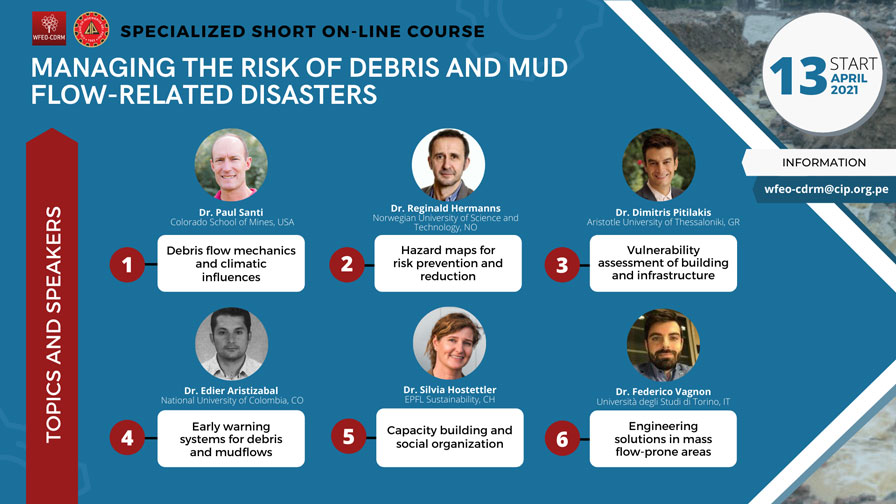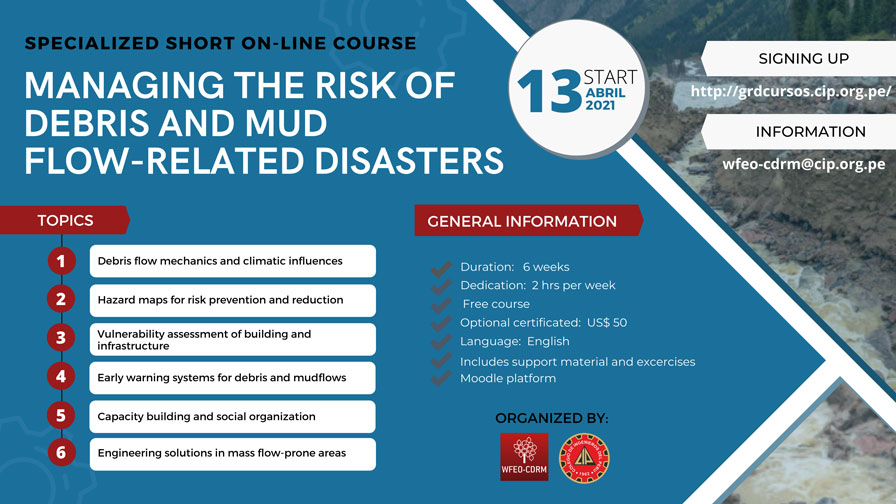INTRODUCTION
Debris flows and mudflows are mass movement that cause great damage every year around the world. Direct damage includes loss of lives, destruction of houses and facilities, damage to roads, railways, vehicle accidents, and damage to agricultural land, livestock and forest stands, disruption of water supply systems, devaluation of fisheries, environmental effects due to product spills, among others. As indirect cost, the disruption of traffic and communication linear facilities is important (Jakob & Hungr, 2005).
To understand phenomena, to estimate the occurrence of disastrous mass flows and prevent their negative effects. New techniques and systems allow early warning useful to save lives. Protection systems help to secure critical infrastructure. Therefore, planners and decision makers may have tools adequate to manage the risk in different situations.
The Committee on Disaster Risk Management of the World Federation of Engineering Organizations (WFEO), with the support of the Peruvian Engineers Association (CIP), has organized this online course, bringing together distinguished specialists from different countries to address the subject through six topics:
TOPICS
- Climate and mass flows: geographic distribution
Dr. Paul Santi, Colorado School of Mines, USA
- Hazard maps for risk prevention and reduction
Dr. Reginald Hermanns, Norwegian University of Science and Technology, NO
- Vulnerability assessment of building and infrastructure
Dr. Dimitris Pitilakis, Aristotle University of Thessaloniki, GR
- Early warning systems for debris and mudflows
Dr. Edier Aristizabal, National University of Colombia, CO
- Capacity building and social organization
Dr. Silvia Hostettler, EPFL Sustainability, CH
- Engineering solutions in mass flow-prone areas
Dr. Federico Vagnon, Università degli Studi di Torino, Italy



